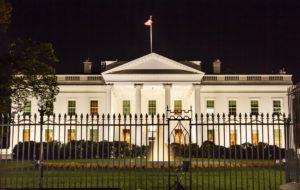Independent Regulatory Agencies Are Not Likely to Be Part of President Obama’s Midnight Rulemaking
A recent report suggests that unlike executive agencies, independent agencies get to continue dancing right past midnight.
Quantitative Models Predict Historic Obama Midnight Surge
Research forecasts a substantial increase in economically significant rules that would outpace that of the past three presidents’ final months.
If We Can Fix TSCA, We Can Fix the OSH Act
President Obama recently signed toxics reform; now it is time to fix workplace safety law, too.
OMB’s Resource Management Offices and Agency Policy Control
Now is a good time to focus on the opportunities for the centralized control of the administrative state that the RMOs provide.
Teaching Regulatory Law Through Online Publishing
Students who participate in RegBlog gain in-depth knowledge about regulation and hone vital professional skills.
Rethinking the Compliance Curriculum
Compliance classes should differ depending on students’ career paths and types of risks the class addresses.
A Different Approach to Teaching Regulatory Law and Policy
Addressing how policy and law influence regulation is a critical—and overlooked—part of regulatory curriculum.
On Teaching Compliance
Compliance should be incorporated into administrative law as well as offered as a separate upper-class course.
Designing a Broader Regulatory Practice Curriculum
Law schools need to create a comprehensive curricular path for students who are pursuing regulatory careers.
Legal Adaptive Capacity and How Agencies Respond to Change
The adaptability of the goals pursued in an agency’s organic statute influences the agency’s response to climate change.
Self-Deception and Regulatory Compliance
Firms vary considerably in how they interpret regulatory commands and signals, posing enforcement challenges.
Improving Benefit-Cost Analysis by Making It Simpler
Earlier and less burdensome regulatory impact analyses would lead to more transparent, better regulatory decisions.












